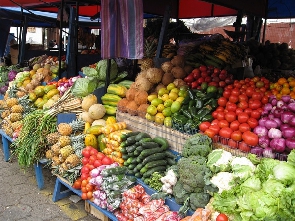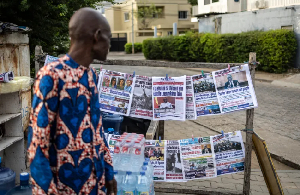The government has been urged to come out with a comprehensive plan to support agriculture to address the soaring food prices in the country, some economic, governance and agricultural experts have said.
That, they said, would help address the growing hardship in the country, largely influenced by increasing food prices, reduce borrowing and address the infrastructure deficit hampering the development of the country.
Food inflation according to data from the Ghana Statistical Service rose to 54.2 per cent in June 2023, the highest in several years.
The Director of Research at the Institute of Economic Affairs, Dr John Kwakye; Director of Advocacy and Policy Engagement at the Ghana Centre for Democratic Development (CDD-Ghana), Dr Kojo Pumpuni Asante, and the Executive Director of Peasant Farmers Association of Ghana, Dr Charles Nyaba, reached by the Ghanaian Times for their expectations of the 2023 Mid-year budget review, also called on the Finance Minister, Mr Ken Ofori-Atta, to come out with measures to improve revenue mobilisation to control the growing public debt, increase investment in capital expenditure and reduce corruption when he presents the Mid-year budget review to Parliament.
The Finance Minister, Ken Ofori-Atta would present a Mid-year Budget Review to Parliament on Monday in accordance with Section (28) of the Public Financial Management Act, 2016 (PFMA) Act 921 which requires that the Finance Minister presents a mid-year review to parliament six months after the presentation of the main budget for that fiscal year.
The Mid-year budget review to be presented by the Finance Minister will be the first since the government sought for a three-year Extended Credit Facility with the IMF for $3-billion to restore macroeconomic stability and ensure debt sustainability in 2022.
Dr Kwakye said the Finance Minister should come out with concrete strategies to shore up revenue mobilisation to reduce borrowing to meet government’s revenue needs.
“Plugging the tax loopholes, paying attention to property tax, addressing under declaration by importers and tackling tax evasion, cutting the size of the government can help raise the tax envelope much higher,” he stated, adding that government could also raise much revenue from the extractive sector.
The Director of Research at IEA suggested that the Finance Minister in the Mid-year budget should come out with plans to support food processing and preservation to address post-harvest losses, and incentives to support the carting of food stuff from the food producing areas to the cities.
Dr Asante said the Finance Minister had to outline “Specific policies, plans that the government intend to rollout to deal with food inflation.”
He said there was general complain from the citizens about the rising food prices, but there was no signal as to what the government was doing to address the challenge.
Dr Charles Nyaba said food prices were skyrocketing due to the high cost of production, the cost of food production had increased by more than 100 per cent due to the withdrawal of subsidies on inputs such as fertiliser and farm machinery.
He said the GSS data for June 2023 inflation said food price inflation was leading the inflation basket at 54 per cent, saying the June 2003 inflation was one of the highest inflation in Ghana.
Dr Nyaba suggested that the government in the Mid-year budget review should re-introduce the subsidies it had withdrawn, and also provide tax waivers on the importation of farm inputs.
Business News of Friday, 28 July 2023
Source: ghanaiantimes.com.gh













